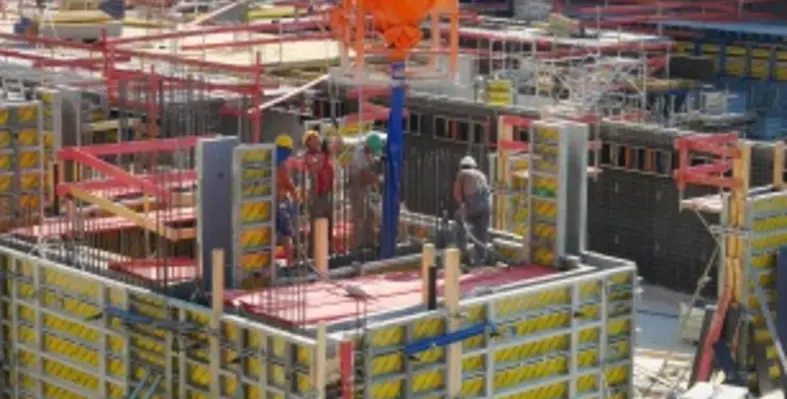Labour productivity is seen as the major opportunity to improve on-site efficiencies, freeing up workers for other vital tasks or reducing time spent on tasks, such as formwork management, revealed RMD Kwikform?s Commercial Buildings Report 2019
Having undertaken a survey with contractors and engineering consultants from around the world, the study identifies areas where temporary works can have a significant impact on productivity and safety, and highlights where there is a need for education and best practice to be shared more effectively.
The white paper goes on to discuss the importance of projects adopting effective building methods and formwork systems, with contractors identifying systems that are easy to erect and dismantle as being the number one consideration to help increase productivity levels.
It raises the need for safer methods of construction to be introduced. However, rather surprisingly, respondents felt that individual workers needed to take more responsibility for their own health and safety. This was rated higher than contractors themselves improving site conditions.
While personal responsibility is clearly important, an employer?s role in providing a safe working environment should be a top priority. The white paper outlines an important role that formwork has to play in helping contractors to achieve this, with systems offering integrated safety features providing a real benefit to sites.
Simon Dowd, major projects manager at RMD Kwikform, explains, ?Spending on falsework and formwork typically accounts for five-seven per cent of a contractor?s annual revenue ? a significant sum. This highlights the importance of properly considering these solutions, and how they can help drive productivity while meeting required health and safety standards.?
Multi-level safety screens below the deck level are viewed as a good way to improve the construction safety, while improving productivity levels and working cycles on facades too. The white paper discusses the benefits that can help deliver in more detail, as well as how best to overcome the challenge of debris falling in commercial building environments.
In addition, it covers recommended building methods and techniques, and the determining factors when appointing groundworks contractors and hiring equipment.
?Our new white paper has been undertaken with leading contractors and engineering consultants from around the world to really shine a light on this matter, even allowing us to identify regional differences, which has been fascinating to see. The findings uncovered have been invaluable, offering real insights that have then led to clear recommendations on how temporary works can help drive productivity and improve safety for commercial building projects,? Simon added.
To read the white paper in full, please visit: http://bit.ly/2ysRUaI







